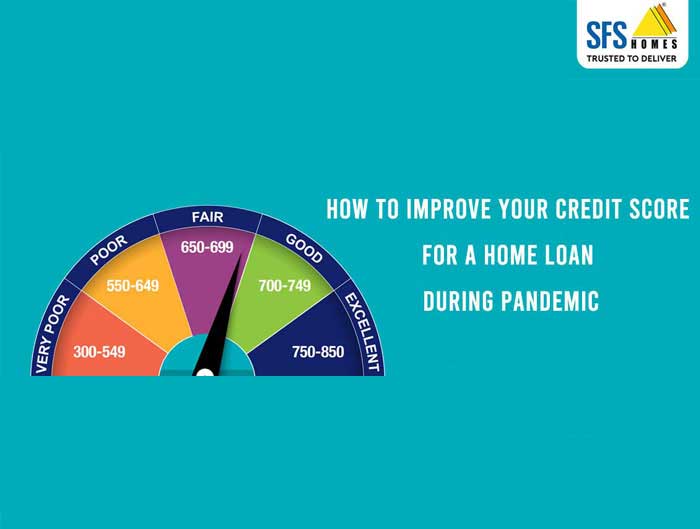How to Improve Your Credit Score for a Home Loan during Pandemic
September 13, 2023
A credit score is everything. It gives the lenders or the banks vital information about your creditworthiness. It is a score rating from 300 to 900. It informs the lenders or the banks as in many cases your ability to repay back the loan taken. There are many things that a lender will look for before approving a loan and a good credit score is one of them. A good credit score ranges between 700 and 900.
A good credit score will affect your loan repayment time. It will provide you with a low interest rate and a high loan amount, and of course the time frame for approving the loan, which will be quicker.

Some banks provide low-interest rates to borrowers, who have a high credit score around 700 and above. To increase your credit score, one should adopt the following measures.
- Crosscheck your credit report: Sometimes, there can be errors in your credit score report. So, check thoroughly whether your report is updated or not. You can also check whether your report is authentic and if any issues are found, get it corrected.
- Decrease your loan applications: You should not apply for more loans from multiple lenders or banks as it may hit your credit score badly. It may also signal to the lenders that you are facing a cash crunch or a distress situation.
- Personal loans: Don’t go for personal loans as they are unsecured loans and may hit your credit score. Banks might think the borrower is risky if you have unsecured loans.
- Loan repayment: One should not default on existing loan dues, as they will lower your credit score rating. All loans should be repaid back in the time frame agreed upon. The banks or the lenders will also look at your other factors, such as your present salary, financial history, and any outstanding dues.
If your credit score summary is good, there are high chances that your loan will be approved. Any rejection of loans should not be a disappointment in these pandemic times. But it has to be analyzed why the lender rejected the loan application. A thorough understanding of the fundamentals of your credit score has to be undertaken. The points listed above can come to the rescue. A good credit score will mean you are out of debt and have access to funds or loans from lenders or as the case may be from banks or financial institutions.
In India, we look at CIBIL score, which is the standard in credit score.




